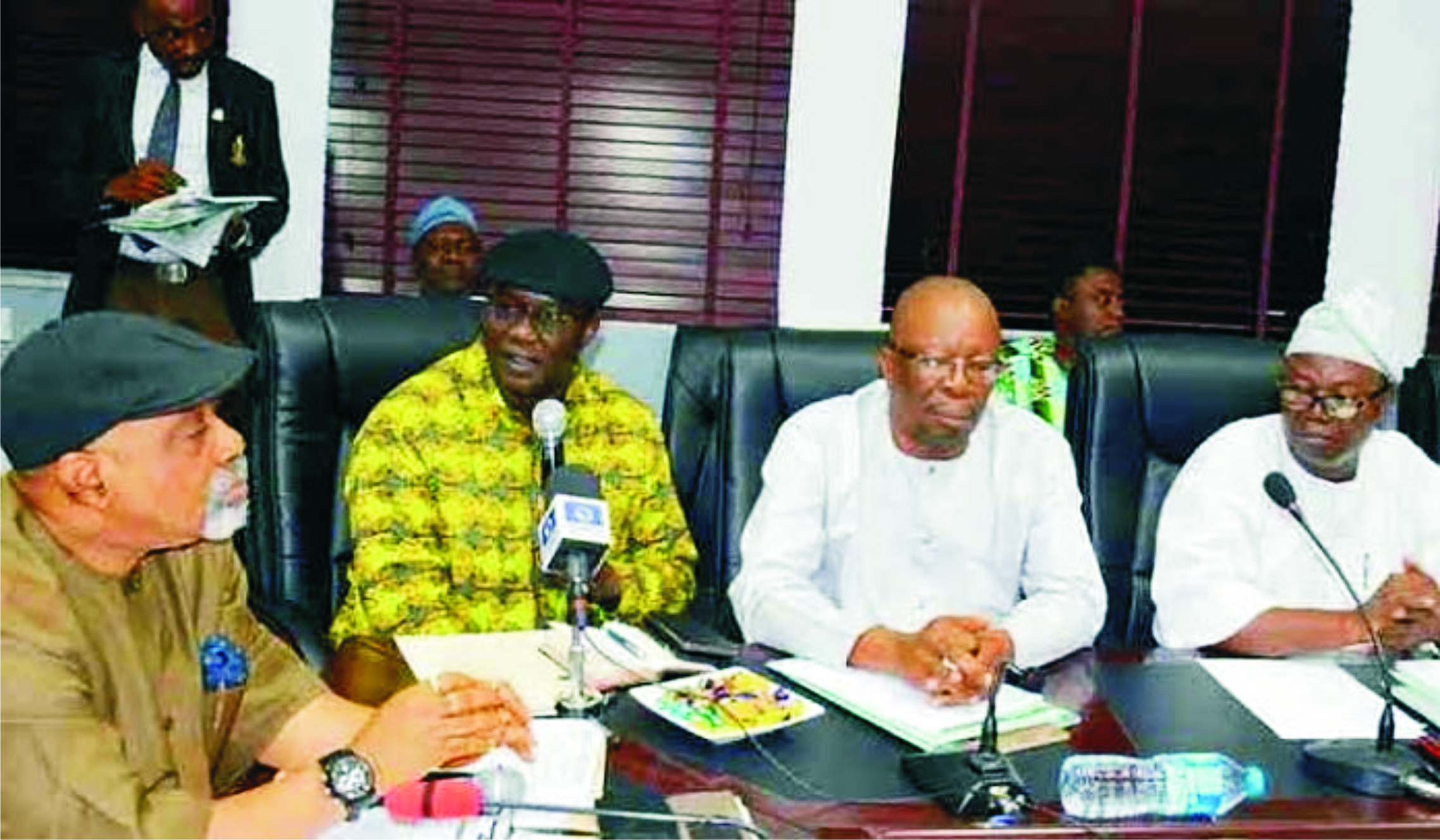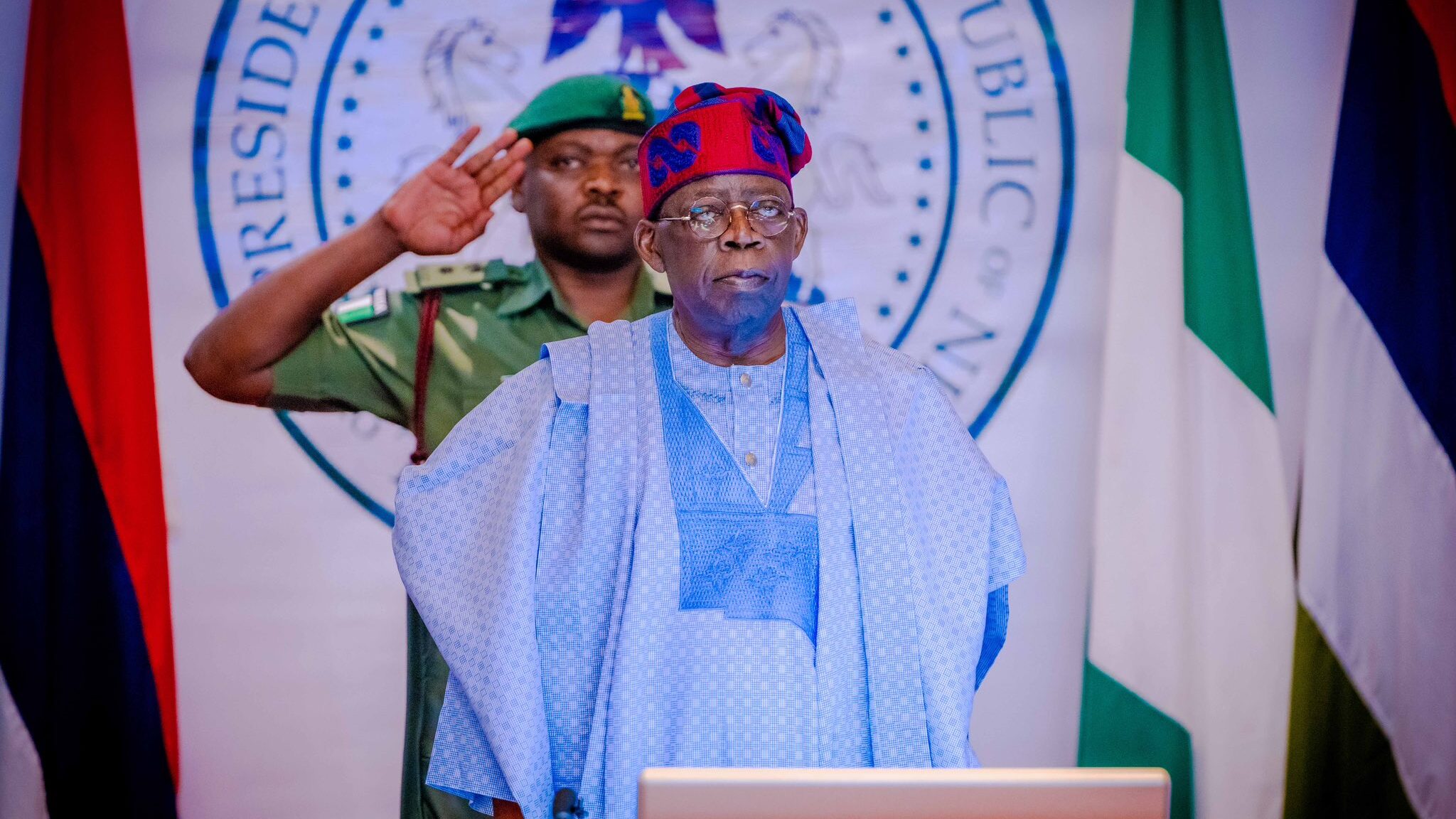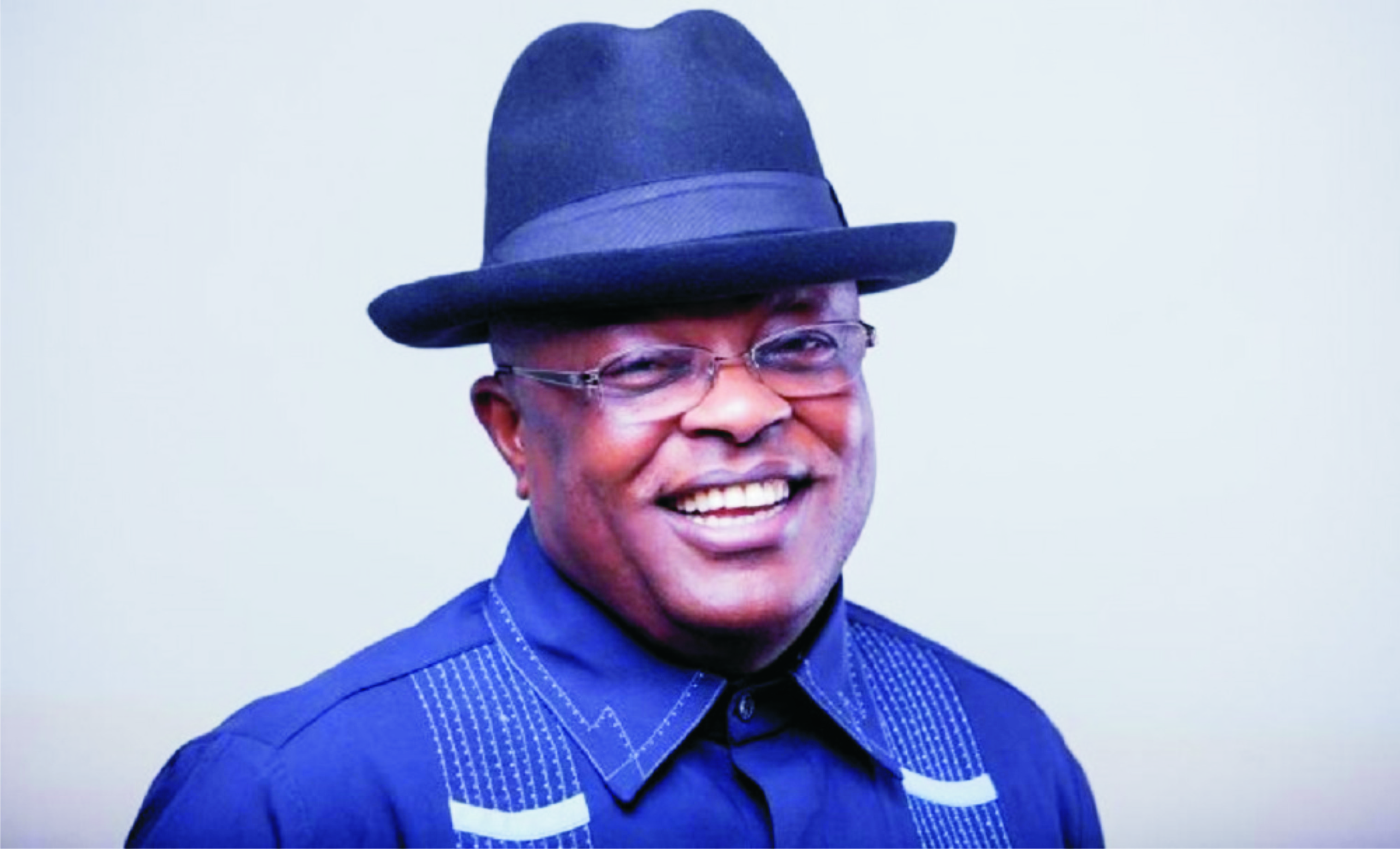News
FG, Labour Agree On Consequential Adjustment On New Minimum Wage

Organised Labour and the Federal Government, yesterday, finally agreed on percentage increase of the consequential adjustment in workers’ salaries as a result of the new minimum wage of N30, 000.
After three days of horse trading and intense negotiation, both teams finally shifted ground from their earlier positions and agreed on certain percentages.
The Federal Government and organised labour, at the end of the meeting, agreed to percent increase of 23.2 percent for workers on level 7, and 20 percent for workers on level 8, while it agreed on 19 percent increase for workers on level 9.
Also, the government and Organised Labour agreed on 16 percent salary increase for workers on level 10-14 and 14 percent increase for workers on level 15-17.
Earlier, the Federal Government and Organised Labour had failed to reach an agreement on the full implementation of the new minimum wage after it resumed negotiations on the consequential adjustment of salaries for workers Wednesday night.
After about eight hours meeting that began at 5pm on Wednesday and ended at 2am on Thursday, Minister of Labour and Employment, Sen. Chris Ngige, told journalists that both parties have agreed to adjourn the meeting to 7pm, yesterday.
Organised Labour was led into Wednesday’s meeting by the President of the Nigeria Labour Congress, Comrade Ayuba Wabba, President of the Trade Union Congress, Comrade Quadri Olaleye, former president of TUC, Bobboi Kaigama, NLC Deputy President, Comrade Amaechi Asogwuni, Chairman Joint National Public Service Negotiating Council, Simon Achaver, NLC’s General Secretary, Emmanuel Ugbaoja, JNPSNC Secretary, Alade Lawal, President of Nigeria Union of Local Government Employees, Ibrahim Khaleel, and JNPSNC member, Lawrence Amaechi.
The government team had Head of Service of the Federation, Dr. Folashade Yemi- Esan, Minister of Labour and Employment, Sen. Chris Ngige, Minister of State and Employment, Festus Keyamo and the Acting Chairman, National Salaries Income and Wages Commission, Ekpo Ntan other government officials.
The minister said that both parties finally agreed on so many areas which they had earlier failed to agree on before calling for the adjournment of the meeting.
He said that assignments have been given to some people on both sides, with the committee expecting a feedback from them.
Like on Tuesday, the meeting broke into sessions twice when the government and labour teams had to leave the general session to meet separately before continuing with the joint session.
On Tuesday, both the Federal Government and organised labour had shifted ground from their initial positions.
The government had agreed to an increase of 17 percent for workers on levels 7 – 9.
While it offered 15 percent increase to workers on levels 10 -14 and 12 percent increase to workers on levels 15-17.
Before the new offer, government had said that it could only offer 6.5 percent increase for workers on levels 15-17 and 11 percent increase for workers on levels 15-17.
While the leadership of organised labour demanded for 25 percent for workers on levels 7- 14 and 20 percent for workers on levels 15-17 during Tuesday’s meeting.
On Wednesday, both parties failed to disclosed details of the areas they had agreed on to journalists.
The minister said: “As you can see, we met and broke into committees, we come back, we finally agreed on so many areas which hitherto we could not agree on and we are adjourning the meeting. We have given assignments to some people on both sides and we will go and do the work and get back to us. The work involved is enormous. We are giving them the entire day to get back to us.
“Issues of money and wage adjustments as per different wage structures; we have about 12 wage structures presently in Nigeria which you know of. We don’t want to make mistakes that could be fatal and thereby put the whole exercise we have done in jeopardy.
“Therefore, we have consensually agreed that we reconvene this meeting at 7pm today. This will enable those that we have given assignments to complete the assignments and bring them back to us.
“We are very okay with the meeting. It is moving on smoothly and as you can see from here there is conviviality, it is very cordial, nobody is fighting. We disagreed about some areas but we have agreed back. That is the important thing. Let the work continue.”
NLC President, Wabba said that some progress had been made but added that an agreement he not been reached.
He aid: “It is the Collective Bargaining Process that has actually lasted this long. Some progress has been made but we have not been able to conclude and then have a collective bargaining agreement (CBA) and some committees need to do some computation. You can see that they have worked up to early hours of today. That is in the true spirit of collective bargaining. It is give no take and that is what we are trying to do to get the whole process concluded and put very thing behind all of us.
“In collective bargaining, if a meeting is adjourned, you should know that is not our practice. Our practice is that until we are able to conclude the issues and we are able to inform them (Nigerians) appropriately but not midway when we are making progress. We cannot abruptly disrupt the process. At the appropriate time we should be able to give details.
“We cannot speak on the percentage until we finish the negotiation. The matters under consideration are implementation and consequential adjustment.
“That is mere speculation. We should work on the basis of information that is credible.”
News
Tinubu Orders Fresh Push To Crash Food Prices

President Bola Tinubu has ordered a Federal Executive Council committee to move swiftly on measures to further reduce food prices across the country.
The Minister of State for Agriculture and Food Security, Senator Aliyu Sabi Abdullahi, disclosed this in Abuja, on Wednesday.
According to him, the directive focuses on ensuring safe passage of farm produce across transport routes to cut logistics costs.
“The President has given a matching order with a Federal Executive Council committee already handling it on how we are going to promote safe passage of agricultural foods and commodities across our various routes in the country,” Abdullahi said at a capacity-building workshop for Senate correspondents.
0:0
Nigeria, Africa’s most populous nation, has faced worsening food insecurity since the removal of fuel subsidy, high transport costs, and insecurity on major highways disrupted the movement of goods.
Despite government interventions, food remains largely unaffordable for millions.
The minister said the plan is tied to Tinubu’s broader vision of food sovereignty—beyond availability to ensure affordability, accessibility, and nutrition on a sustainable basis.
To back this up, he revealed that government is set to roll out a Farmer Soil Health Scheme to boost productivity and a revamped cooperative reform initiative to mobilise resources and empower rural farmers.
“Mr. President has shown tremendous interest in the cooperative sector as a veritable tool for resource mobilisation, for economic activity generation, and to improve the livelihood of members,” Abdullahi added.
The event, with the theme, “Parliamentary Reporting: Issues, Challenges and Responsibilities,” also featured Senate Media Committee Chairman, Senator Yemi Adaramodu; ex-presidential aide, Senator Ita Solomon Enang; and NILDS DG, Prof. Abubakar Sulaiman.
News
Umahi Threatens Defaulting Contractors With EFCC Arrest

The Federal Government has warned contractors, including foreign firms, that any breach of regulations in road projects awarded to them may lead to arrest by the Economic and Financial Crimes Commission and the Independent Corrupt Practices and Other Related Offences Commission.
The Minister of Works, David Umahi, issued the warning during an inspection of the ongoing dualisation of the East-West Road (Section IIIA) from Eleme Junction to Onne Port Junction in Rivers State.
The section is being executed by Reynolds Construction Company (Nigeria) Limited.
Responding to questions from journalists, Umahi commended the quality of work on the project but expressed displeasure over the slow pace, stressing that the December completion deadline remains sacrosanct.
On the project, he said:“The quality of the work is excellent, but the pace of work is totally unacceptable. Let me make it very clear to the contractor that this project will neither be reviewed nor varied in price or claims.
“I’m sure we have issued over 10 warning letters to them. If they fail to comply with the completion deadline of December 15, we will not extend it.”
He added that the ministry had already put measures in place to enforce compliance
“The comptroller has negative certificates to issue, and I will recover the money from any of their other projects. All those letters are on record, and when the time comes, they will be invoked. Any contractor who refuses to abide by regulations will have the EFCC and ICPC to contend with,” he said.
Umahi further disclosed that the Federal Government had directed that road projects valued below N20bn would no longer be awarded to expatriate companies, in line with its “Nigeria First” policy aimed at strengthening indigenous capacity in the construction sector.
“This is part of the Nigeria First policy of the Federal Government. Henceforth, no expatriate firm will be awarded any project valued below N20bn. Such projects must go to indigenous companies, while expatriates focus on higher-value projects requiring more technical capacity,” he said.
The minister also noted that the Federal Ministry of Works had adopted a funding prioritisation framework to sustain road projects initially financed by the Nigerian National Petroleum Company Limited under the Road Infrastructure Development and Refurbishment Investment Tax Credit Scheme.
He stressed that President Bola Tinubu had directed that none of such projects should be abandoned, adding that priority would be given to critical economic corridors.
Umahi also decried the indiscriminate parking of heavy-duty vehicles on highways, saying it was damaging the pavements of completed sections of the road.
He said letters would be sent to state governors and the Inspector-General of Police to enforce punitive measures against defaulters.
Earlier, the Federal Controller of Works in Rivers State, Mrs Enwereama Tarilade, said RCC had completed 15km of the right carriageway and commenced work on the left carriageway, with one kilometre already laid in Continuously Reinforced Concrete Pavement.
News
We’ll Support Federal University Environment And Technology – Ibas

The Rivers State Government says it will ensure the smooth and successful takeoff of the newly established Federal University of Environment and Technology (FUET), in Ogoniland.
This commitment was made yesterday by the Administrator of Rivers State, Retired Admiral Ibok-Ete Ibas (Rtd), during a courtesy visit by the university’s Governing Council and Management team at the Government House, in Port Harcourt.
The high-level delegation was led by the Pro-Chancellor and Chairman of the Council, Professor Don Baridam and the Vice-Chancellor, Professor Chinedu Mmom.
In his address, Administrator Ibas warmly congratulated the pioneer council and management on their appointments, describing their task as both a recognition of individual accomplishment and a historic call to duty.
“This is not just a recognition of your personal achievements but also a call to history to shape an institution that will have a profound impact on Rivers State, the Niger Delta, and indeed our country,” he stated.
The Administrator commended President Bola Ahmed Tinubu for the establishment of the specialized university in Ogoniland, describing the initiative as “timely and strategic.”
He emphasized that the university’s presence offers a critical opportunity to drive research, innovation, and community-focused solutions to the region’s pressing environmental and developmental challenges.
He further noted that the university’s core focus aligns perfectly with the priorities of his administration.“We consider this university not merely as another institution of higher learning but as a strategic partner in our collective effort to rebuild Rivers State under the ongoing state of emergency and beyond,” he affirmed.
Responding to specific requests presented by the delegation, Administrator Ibas assured the university of immediate support in critical areas essential for the its commencement.
These include the provision of operational vehicles, key facilities, and the completion of the access road to the campus, adding that other vital needs, such as perimeter fencing, refuse disposal, and the issuance of a Certificate of Occupancy, would be addressed within the framework of the state’s broader infrastructure and support programmes.
To ensure swift action, the Administrator directed the Secretary to the State Government (SSG) to work closely with the university’s Governing Council to prioritize the sequence of requests, particularly those tied to the commencement of academic activities in September 2025.
“Let me assure you that Rivers State Government will stand as a dependable partner to the Federal University of Environment and Technology. We see this university as part of our long-term investment in knowledge, innovation, and the future of our youths,” he emphasized.
In his remarks, the Pro-Chancellor and Chairman of the Governing Council, Professor Don Baridam, reaffirmed the university’s commitment to academic excellence, innovation, and community development.
He disclosed that the Federal Government has directed the institution to formally commence its academic session in September 2025, adding that preparations are in full swing to ensure a smooth take-off with adequate infrastructure and resources in place.
“Today’s meeting marks the beginning of a strategic partnership between the Rivers State Government and FUET, envisioned to establish the university as a premier hub for research, innovation, and sustainable development in the Niger Delta”, he said.







